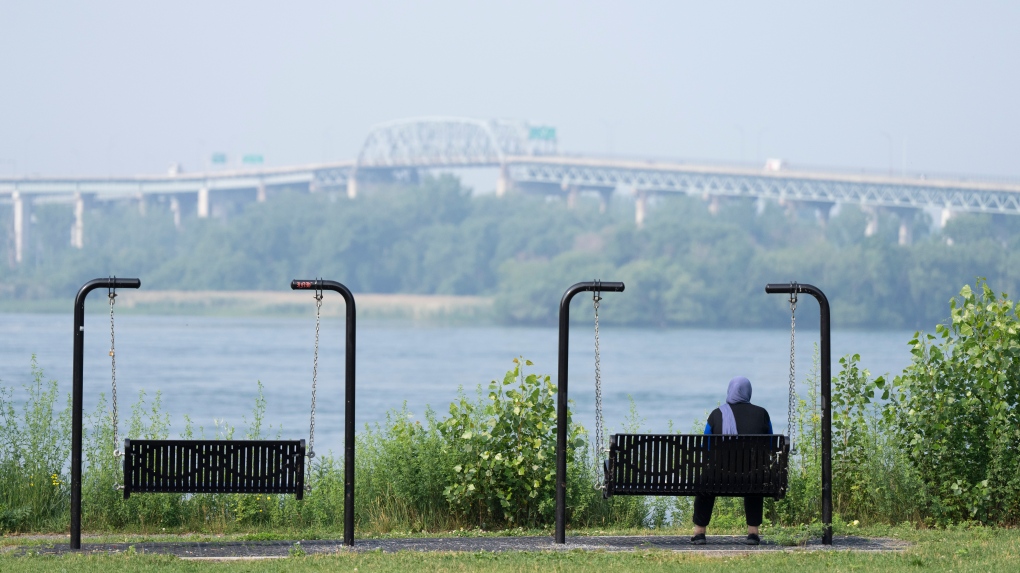
Study warns that the number of air quality alerts in the U.S. will quadruple by 2100
CTV
A new study headed by researchers from the University of Waterloo found that by the year 2100, climate change will quadruple the number of air quality alerts in the U.S.
After a summer of raging wildfires that affected the air quality of multiple communities in North America, a new study headed by researchers from the University of Waterloo suggests that climate change will quadruple the number of air quality alerts in the U.S. by the year 2100.
Researchers from Canada and the U.S. found that in about 75 years, people would need to stay indoors for 142 extra days per year in order to avoid additional health risks from intensifying air pollution.
The increase in air quality alerts, which occur when the Air Quality Index (AQI) gets too high, will be greatest in the eastern half of the U.S., with people experiencing homelessness or those in homes that allow polluted air in not getting adequate health protections.
Dr. Rebecca Saari, senior author of the study and associate professor in the department of civil and environmental engineering at the University of Waterloo, said this will disproportionately affect areas with high Black populations and leakier homes, widening existing inequalities and impacting those less able to adapt.
"Air pollution disproportionately impacts vulnerable people in the U.S.,” Saari stated in a media release.
Staying indoors for an additional 20 extra weeks per year would cost a person an average of $5,600, based on the cost of their lost outdoor time and the benefit of reduced health risks, the study notes. It suggests this is neither desirable nor realistic.
The researchers conclude that relying on individuals to take the necessary steps to adapt will likely be ineffective without policy measures to increase adherence to safety measures. This includes reducing costs for those trying to stay inside, taking the initiative to repair air leaks or improve the air quality of buildings, as well as providing help for those who live or work outdoors to adapt.





















 Run 3 Space | Play Space Running Game
Run 3 Space | Play Space Running Game Traffic Jam 3D | Online Racing Game
Traffic Jam 3D | Online Racing Game Duck Hunt | Play Old Classic Game
Duck Hunt | Play Old Classic Game